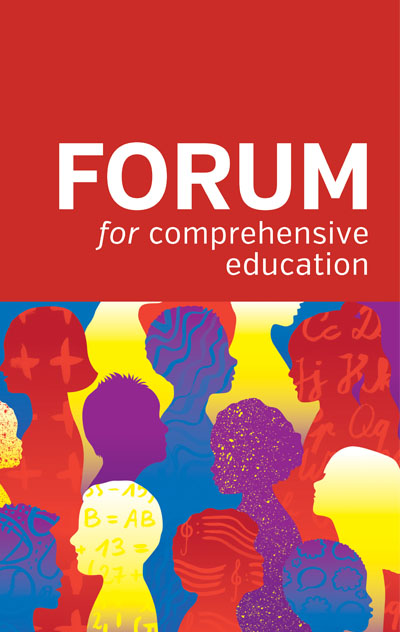
Comprehensive Schools: Historical genesis and philosophical reflection
FORUM - Print ISSN 1474-7685 - Online ISSN 2047-7171
Volume 63 Number 1 (2021)
Comprehensive Schools: Historical genesis and philosophical reflection
RICHARD PRING pages 11‑19
DOI: 10.3898/forum.2021.63.1.02
Abstract
This article sifts the historical and philosophical soil out of which the comprehensive ideal in education has sprung. England's national school system emerged in the nineteenth century imbued with ruling-class assumptions about the education required for each supposed type of child destined to take his or her place in one of the three broad social strata. Continual activity through the organisations of the working class, coupled with the changing needs of a developing economy, helped give rise to the demand for a common school. But a tripartite system persisted across the twentieth century, buttressed by the work of influential psychologists and psychometricians. This settlement began to be adequately challenged only when the first handful of comprehensive schools established themselves in the late 1950s and early 1960s.
To cite this article
RICHARD PRING (2021) Comprehensive Schools: Historical genesis and philosophical reflection, FORUM, 63(1), 11-19 . https://doi.org/10.3898/forum.2021.63.1.02
